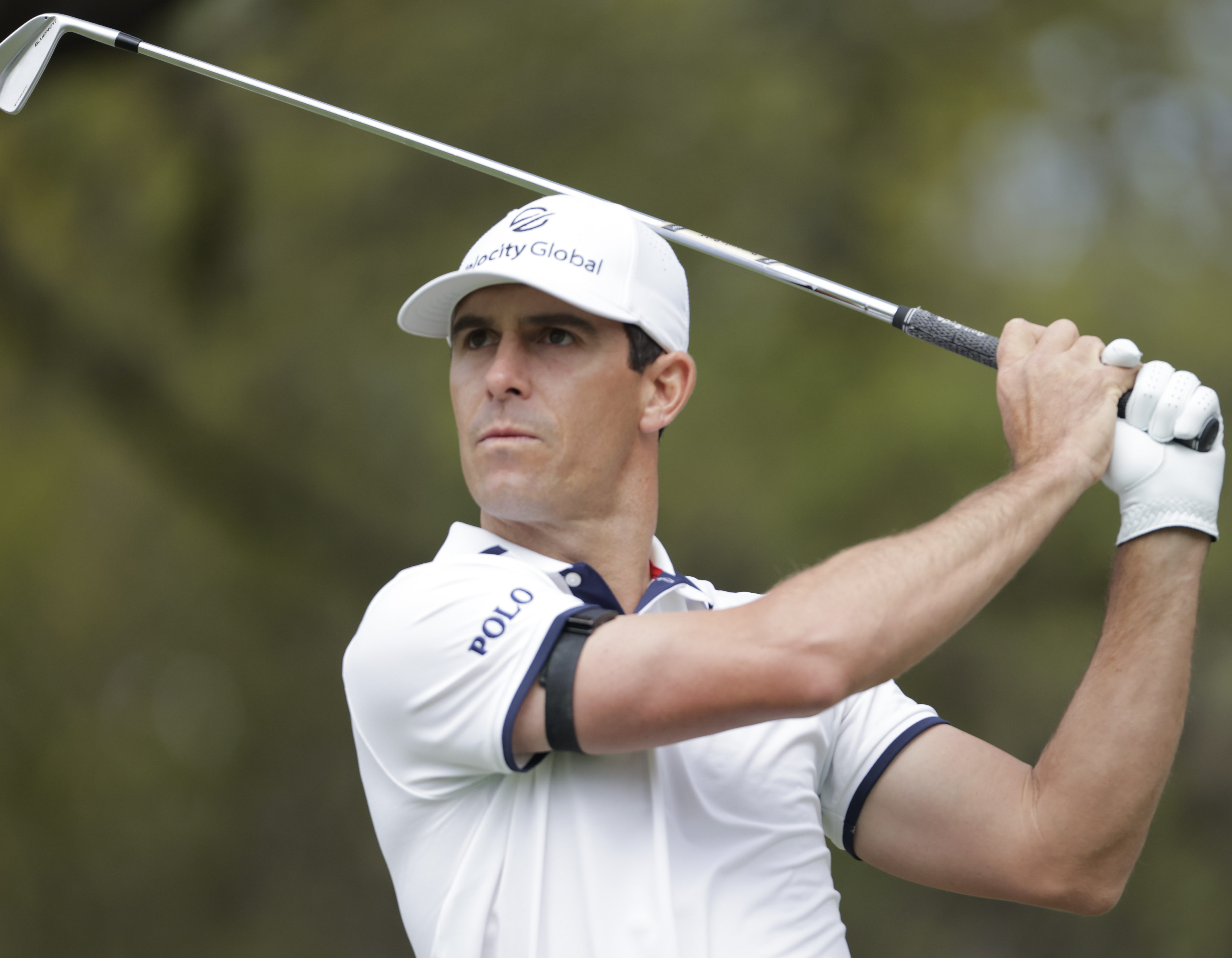AUSTIN, Texas — So much for excruciating work, long hours and exhaustive prep being the only paths to success in the golf world.
Billy Horschel primed for a busy week at the World Golf Championships-Dell Technologies Match Play with the exact opposite approach — taking his family for a much-needed spring break vacation in his home state of Florida.
Who’s to challenge the results? Horschel put together a week to remember at Austin Country Club, winning weekend matches over Kevin Streelman, Tommy Fleetwood and then Victor Perez to reach the final.
As the winds picked up on Sunday afternoon, Horschel looked rested and relaxed as he downed Scottie Scheffler, 2 and 1, to claim the title. Horschel, who hadn’t won a sanctioned PGA Tour event since taking the 2018 Zurich Classic with Scott Piercy and an individual title since the 2017 AT&T Byron Nelson, credited the extended break for the hop in his step.
“I think mentally it was the key. I played really well at Concession; felt good about my game, and go to Bay Hill and Players and play really bad,” Horschel said on Sunday. “So it was just a great mental reboot to spend time with family, my kids, my aunt and uncle, my cousins and their kids. It was just nice. I don’t think we’ve been on a family vacation I don’t think ever because of me that didn’t have clubs involved.
“So everyone had a great time, and I’m sure there will be more of this after seeing the success I’ve had this week.”
Horschel didn’t come into the week with a great track record at the WGC Match Play event, winning a single round in 2014 when the tournament was still sudden death, and then failing to get out of pool play in his three subsequent starts.
But the University of Florida product grinded out the win, battling Scheffler as each made a number of missteps through swirling winds. Horschel thinks he’s got the game to succeed in this event for years to come.
“I think I should be a good match play player. I have been. I have spells where I played really good in matches. I think when you putt really well, you putt really well inside 10 feet, something I do really well, I think it makes it tough to, if you don’t give holes away, it makes it tough on your opponents,” he said. “And I just haven’t done a few things correct in certain matches in previous years to be able to get to the point I am now and so I think I’m learning from those. I’m hoping I am.”
Scheffler was making his debut in the event, but he maneuvered around Austin Country Club like he knew the place — because he does. Scheffler played collegiately at the University of Texas, which is just a short ride away from Pete Dye-designed course.

Scottie Scheffler during the semifinal match of the WGC-Dell Technologies Match Play at Austin Country Club. (Photo: Erich Schlegel-USA TODAY Sports)
Scheffler won his pool then delivered knockouts to Ian Poulter, Jon Rahm and Matt Kuchar to reach the final. Although he’s yet to win on the PGA Tour, Scheffler came in as the 30th seed in this event and was the top remaining seed of the Sunday semifinalists. The runner-up finish marks his best to date; he finished T-3 at the 2019 Bermuda Championship and alone in third at the 2020 The American Express.
And although he was unhappy with his final round, which included a pair of costly bogeys on Nos. 7 and 9, he still enjoyed the company.
“I love playing golf with Billy. He is one of my favorite guys out here,” said Scheffler, who was the 2020 PGA Tour Rookie of the Year.
Scheffler was a spectator at this event while playing for the Longhorns, something he looked back fondly on.
“All I really remember was coming out here with my buddies and wife and just kind of having a good time walking around seeing shots, kind of messing around, gambling a little bit and having some fun,” he said. “I don’t think we watched anybody in particular but just kind of walked the course and had some fun.”
Meanwhile, Kuchar — who has a long history of success at this event, capturing the title in 2013, and reaching the final in 2019 before falling to Kevin Kisner — won the consolation match over Perez, 2 and 1.
![]()

